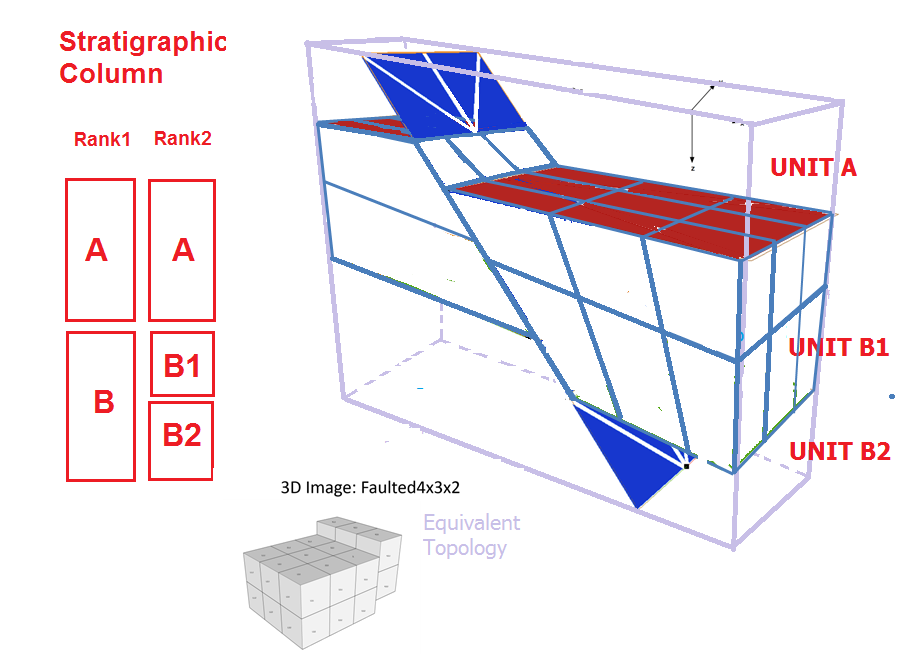9.3.1.3.2 Creating a Stratigraphic Organization Interpretation and a Grid Representation
| Topic Version | 1 | Published | 09/11/2015 | |
| For Standard | RESQML v2.0.1 | |||
Software F is "classic" package used to build 3D grid representation. To begin, Software F can import either of these:
- EPC_2, the structural interpretation with a non-sealed surface framework
- EPC_3, the structural interpretation with a sealed surface framework
In either case, the first step with Software F is to follow the same methodology as Software E: Define a stratigraphic organization interpretation by choosing a specific rank (Rank2 in this example) on which to build the 3D grid, and declare as geologic unit features, all the stratigraphic unit interpretations that must be identified (Unit_A interp and Unit B interp for Rank1 and Unit_A interp + Unit B1 interp and Unit B2 interp for Rank2). This definition specifies the stratigraphic column, which will be attached to Peter's earth model interpretation.
Software F can also directly import this information from EPC_4.
Then, Software F can import from EPC_2 or EPC_3 Peter's boundary interpretations (Horizon_1_Peter and Horizon_2_Peter) and use them to build up its 3D grid (Figure 9.3.1.3.2-1).

The faulted 4X3X2 grid detailed in Section 11.19.2 4x3x2 Faulted IJK Grid can be used here to represent the Unit B1_Interpretation.
Commonly, the 3D grid defined in the Chapter 11 Grids represents a complete rank of stratigraphic organization interpretation.
EPC_5 package can be created that contains a description of the stratigraphic organization interpretation in terms of stratigraphic column rank interpretation and the grid representation that is linked to it.